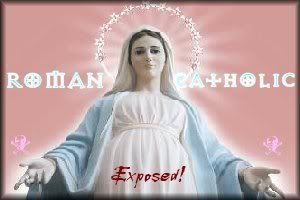
Order Copies of This Book for Your Catholic Family, Neighbors, & Friends
Through indulgences, the sins of Roman Catholics, both those who are alive and those in Purgatory, can supposedly be forgiven:
Here is the Catechism's definition of an indulgence:
Here, the water gets deep. Space does not permit a full explanation of indulgences. Suffice it to say that they are a complicated system of good works. It should also be mentioned that every rule regarding indulgences is a tradition of men. Not one can be found in God's Word. Categories of Sins?
But the Bible consistently reveals that all sin has the same consequence:
The final result of sin is always death, no matter how minor we may think a particular sin is. Catholics try to pay for sins through indulgences, but Christ already paid for every sin:
While it is true that God does want His children to perform good works, those works are not a requirement for salvation, they are a result of salvation. Paul teaches:
Once one is saved by grace, good works should follow. But good works are never a requirement for salvation. Neither are they a requirement for forgiveness of sins after salvation. The New Testament bulges with examples of Jesus forgiving sins, but He never demanded good works as a condition of forgiveness. Can the Living Help the Dead? Catholicism also purports that indulgences help those who have already died:
Here is another load of man-made traditions. You will never find any of this taught in the Word of God. As we have mentioned previously, the time to have your sins remitted is while you are still alive. Three Themes In this doctrine, three recurring themes come to the surface again: 1. Another divine attribute of Jesus is minimized. The Bible declares that only Christ's work can bring about the forgiveness of sins. Catholicism, though, claims that sins can be forgiven through the good works of any ordinary Catholic. 2. Indulgences keep people in bondage to the Catholic church. Rather than going to God for forgiveness, Catholics must toil and strive, performing good deeds through the Catholic church for forgiveness of their sins. It is noteworthy to ponder that the "good works" of Catholicism differ from the good works of the Bible. Biblical good works are deeds done for other people, while Catholicism' s good works revolve primarily around performing rituals of the church (Masses, saying rosaries, Catholic prayers, lighting candles, etc.). God intended good works to benefit others, not to bring people into bondage to a church. 3. Indulgences are a form of spiritual blackmail, forcing members to remain faithful to the church, so they can someday help their loved ones reach heaven. Conclusion Is this system of good works from God? Read what God records in His Holy Word on the subject, then decide for yourself:
|


